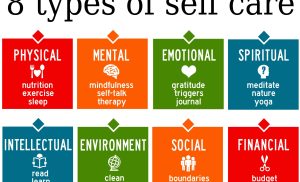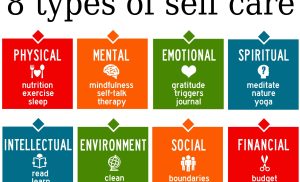Mindful Volunteerism: Making A Difference With Heartfelt Action
In this article, you will explore the power of mindful volunteerism and how it enables you to make a genuine difference in the lives of others. By approaching volunteer work with a compassionate and heartfelt mindset, you can bring about positive change in your community and create a ripple effect of kindness and empathy. With each act of service, you have the opportunity to connect with others on a deeper level, fostering a sense of unity and shared humanity. So, let’s embark on this journey together and discover the transformative potential of mindful volunteerism!
Understanding Mindful Volunteerism
Defining mindfulness
Mindfulness refers to being fully present in the moment, paying attention to one’s thoughts, feelings, and sensations without judgment. It involves a state of heightened awareness and focus, allowing individuals to engage with their surroundings and experiences more deeply.
Explaining volunteerism
Volunteerism involves the act of offering one’s time, skills, and resources to contribute to a cause or community without expecting anything in return. It is driven by a genuine desire to make a positive impact and help those in need. Volunteerism can take various forms, such as serving at a local nonprofit organization, participating in community events, or engaging in acts of kindness for individuals or groups.
The intersection of mindfulness and volunteerism
The intersection of mindfulness and volunteerism brings together the principles of being present and compassionate with the act of selfless service. Mindful volunteerism encourages individuals to approach their volunteer activities with a mindful mindset, cultivating a deep connection to the cause and the people they are supporting. This combination allows for a more meaningful and impactful volunteer experience.
Benefits of Mindful Volunteerism
Enhanced personal well-being
Engaging in mindful volunteerism can have a positive impact on one’s personal well-being. By taking the time to connect with others and contribute to a cause, individuals often experience an increased sense of fulfillment, happiness, and overall life satisfaction. Mindful volunteerism can also reduce stress and anxiety levels, promoting mental and emotional well-being.
Building empathy and compassion
Mindful volunteerism fosters the development of empathy and compassion towards others. By actively engaging with different communities and understanding their experiences, volunteers become more empathetic and sensitive to the needs and struggles of others. This increased empathy and compassion go beyond the volunteer experience and can positively impact interactions in various aspects of life.
Creating a stronger sense of purpose
Volunteering mindfully helps individuals align their actions with their values and beliefs, leading to a greater sense of purpose. By actively contributing to a cause and making a difference, volunteers often experience a deeper understanding of what truly matters to them. This sense of purpose can bring a newfound clarity and direction to their lives, resulting in increased motivation and personal growth.
Developing self-awareness and self-reflection
Through mindful volunteerism, individuals have the opportunity to develop self-awareness and engage in self-reflection. By actively paying attention to their thoughts, emotions, and reactions during volunteer experiences, individuals can gain insights into their own values, strengths, and areas for growth. This self-awareness can support personal development and facilitate a deeper understanding of oneself.
Choosing the Right Volunteer Opportunity
Identifying values and interests
When choosing a volunteer opportunity, it is important to consider one’s values and interests. Reflect on what causes or issues resonate with you on a personal level. By aligning your volunteer work with your values, you can ensure a meaningful and fulfilling experience.
Considering availability and commitment
Evaluate your availability and commitment level before selecting a volunteer opportunity. Assess how much time you can dedicate and whether you can commit to a regular schedule or prefer one-time volunteer events. This will help you choose an opportunity that fits your lifestyle and allows you to consistently contribute.
Assessing personal skill set
Think about your skills, talents, and expertise when selecting a volunteer opportunity. Identify the areas where you can make a significant impact and contribute meaningfully. Whether it is your professional skills, artistic abilities, or interpersonal strengths, offering what you excel at can enhance the value of your volunteer work.
Researching organizations and causes
Take the time to research different organizations and causes that align with your values and interests. Learn about their mission, impact, and reputation. Understand their approach to volunteer engagement and the opportunities they offer. This research will help you make an informed decision and ensure that your contributions are directed towards a credible and effective cause.
Preparing for Mindful Volunteerism
Setting clear intentions
Before engaging in mindful volunteerism, it is essential to set clear intentions. Reflect on why you want to volunteer and what you hope to achieve through your service. By establishing clear intentions, you can stay focused and align your actions with your desired outcomes.
Educating oneself about the cause
To engage in mindful volunteerism, it is essential to educate oneself about the cause you are supporting. Learn about the issues, challenges, and root causes related to the cause. Understand the community you will be working with and the impact your service can make. This knowledge will deepen your understanding and enable you to contribute more effectively.
Mental and emotional preparation
Prepare yourself mentally and emotionally for your volunteer experience. Recognize that you may encounter various emotions such as joy, sadness, empathy, or frustration during your service. Practice self-care and develop coping strategies to navigate these emotions in a healthy way. Being mentally and emotionally prepared will help you stay present and fully engage in your volunteer work.
Developing a flexible mindset
Adopting a flexible mindset is crucial in mindful volunteerism. Recognize that situations may not always unfold as expected, and challenges may arise. Embrace adaptability and open-mindedness, allowing yourself to learn and grow from unexpected experiences. A flexible mindset enables you to navigate changes and uncertainties while maintaining a positive attitude.
Engaging in Mindful Volunteerism
Practicing active listening
Active listening is a vital component of mindful volunteerism. Pay attention to the thoughts, feelings, and perspectives of those you serve. Be fully present in your interactions, listen without judgment, and strive to understand the needs and desires of others. Active listening promotes meaningful connections and allows for a more impactful volunteer experience.
Showing empathy and compassion
Cultivating empathy and compassion towards others is a fundamental aspect of mindful volunteerism. Put yourself in the shoes of those you are serving, and approach your interactions with kindness, understanding, and genuine care. Empathy and compassion create a supportive and inclusive environment, fostering a deeper connection with the people you are helping.
Being present in the moment
Being present in the moment is a key practice in mindful volunteerism. Focus on the task at hand and fully engage with the people and activities around you. Avoid distractions and multitasking, allowing yourself to immerse fully in the volunteer experience. Being present enhances the quality of your service and enables you to connect more profoundly with others.
Maintaining open-mindedness
Approach your volunteer experiences with an open mind. Embrace diverse perspectives, cultural differences, and varying ways of approaching challenges. Avoid judgment or preconceived notions, and be willing to learn from others. Maintaining an open-minded attitude facilitates a harmonious and inclusive volunteer environment.
Overcoming Challenges and Obstacles
Managing time constraints and commitments
Balancing volunteer commitments with other responsibilities can be challenging. Prioritize your time and establish a schedule that allows for both volunteer work and personal obligations. Communicate your availability and boundaries with the organization you are volunteering for, ensuring a mutually beneficial arrangement.
Dealing with emotional fatigue
Engaging in volunteer work can sometimes lead to emotional fatigue due to the exposure to challenging situations or the sheer emotional investment required. It is essential to engage in self-care practices, such as practicing mindfulness, seeking support from friends or mentors, and taking breaks when needed. Prioritizing your emotional well-being ensures sustainable and impactful volunteerism.
Navigating cultural differences and language barriers
When volunteering in diverse communities, you may encounter cultural differences and language barriers. Approach these situations with respect, curiosity, and a willingness to learn. Be patient and seek guidance if needed. Embrace the opportunity to broaden your cultural knowledge and develop intercultural communication skills.
Addressing unexpected difficulties
Volunteer experiences may not always go as planned, and unexpected difficulties may arise. It is important to approach these challenges with a problem-solving mindset. Remain calm and adaptable, seeking support from fellow volunteers or the organization you are working with. Remember that challenges present opportunities for growth and learning.
Building Sustainable Relationships
Fostering connections with fellow volunteers
Building relationships with fellow volunteers can enhance the volunteer experience and create a sense of community. Foster connections by actively engaging, collaborating, and supporting each other. Share experiences, learn from one another, and create a supportive network that extends beyond the volunteer setting.
Establishing rapport with beneficiaries
While volunteering, it is essential to establish rapport and build trusting relationships with the beneficiaries or communities you are serving. Be respectful, approachable, and attentive to their needs. Engage in meaningful interactions, demonstrating genuine care and interest. Building sustainable relationships with beneficiaries strengthens the impact of your volunteerism.
Collaborating with organizations
Collaborating with organizations plays a crucial role in sustainable volunteerism. Communicate openly with the organization you are volunteering for, ensuring clear expectations and understanding of your role. Offer feedback and suggestions for improvement, demonstrating your commitment to the organization’s mission and vision. Collaboration fosters a sense of shared responsibility and long-term engagement.
Continuing engagement beyond volunteering
Mindful volunteerism goes beyond a one-time experience. Explore opportunities for continued engagement with the cause or community you are supporting. Advocate for the cause, spread awareness, or provide ongoing support through donations or fundraising efforts. Continuing engagement demonstrates a sustained commitment to making a positive difference.
Impacts and Benefits for Volunteers
Personal growth and self-development
Mindful volunteerism contributes to personal growth and self-development. By engaging in service with an open heart and a mindful mindset, individuals can discover new strengths, gain new perspectives, and learn valuable life lessons. Volunteer experiences provide opportunities for self-reflection, self-improvement, and personal transformation.
Enhanced emotional well-being
Volunteering mindfully can have a significant impact on emotional well-being. Through acts of kindness and connection with others, volunteers experience increased happiness, fulfillment, and a sense of purpose. The positive emotions and meaningful relationships cultivated through volunteerism contribute to overall emotional well-being.
Increased social and cultural awareness
Mindful volunteerism fosters an increased awareness of social and cultural issues. By engaging with diverse communities and witnessing different experiences, volunteers develop a deeper understanding of social inequalities, cultural norms, and systemic challenges. This increased awareness promotes social sensitivity and empathy towards others.
Improved problem-solving and teamwork skills
Volunteering often requires problem-solving and collaboration. Through mindful volunteerism, individuals sharpen their problem-solving skills by addressing challenges that may arise in the volunteer setting. They also enhance their teamwork and cooperation abilities by working alongside fellow volunteers and community members. These skills are transferable and can benefit individuals in various aspects of life.
Benefits for the Community
Addressing social issues and promoting positive change
Mindful volunteerism plays a crucial role in addressing social issues and driving positive change within communities. By actively engaging in causes such as poverty alleviation, education, or environmental sustainability, volunteers contribute to creating a more just and equitable society. The collective efforts of volunteers can lead to measurable improvements and lasting impact.
Supporting marginalized individuals and communities
Volunteers who engage in mindful service often provide support and assistance to marginalized individuals and communities. By dedicating their time and resources to those in need, they help bridge gaps and reduce disparities. Volunteers can offer empowerment, resources, and opportunities to marginalized individuals, enhancing their overall well-being and quality of life.
Creating a sense of collective responsibility
Mindful volunteerism nurtures a sense of collective responsibility within communities. By coming together to address social issues, individuals demonstrate their willingness to contribute to the well-being of others. This collective responsibility fosters a sense of unity, collaboration, and shared purpose among community members, strengthening social bonds.
Building stronger and more inclusive communities
Community strength lies in its inclusivity and connectedness. Mindful volunteerism contributes to building stronger and more inclusive communities by fostering understanding, empathy, and collaboration among diverse groups. Volunteers create spaces for dialogue, mutual respect, and appreciation of differences, resulting in more resilient and cohesive communities.
Inspiring Others for Mindful Volunteerism
Sharing personal experiences and stories
Sharing personal experiences and stories of mindful volunteerism can inspire others to get involved. By recounting the impact you have witnessed or the personal growth you have experienced, you can evoke empathy and ignite a desire for positive action in others. Personal stories bring the volunteer experience to life, making it relatable and motivating.
Educating others on the benefits of volunteerism
Raising awareness and educating others about the benefits of volunteerism is a powerful way to inspire mindful service. Highlight the positive impact volunteering has on individuals, communities, and society as a whole. Emphasize the personal growth, social connections, and positive change that can result from engaging in volunteer activities.
Engaging in advocacy and outreach
Advocacy and outreach efforts are essential in inspiring others for mindful volunteerism. Use your voice and platform to advocate for causes, policies, or systemic changes that align with your volunteer work. Engage in outreach activities such as organizing community events, workshops, or awareness campaigns. These efforts create opportunities for others to join in and make a difference.
Leading by example
Leading by example is one of the most effective ways to inspire others for mindful volunteerism. Demonstrate your commitment to service, compassion, and mindfulness in your own actions and choices. Show others what is possible through volunteerism and how it can create a ripple effect of positive change. Your visible dedication and impact can motivate others to follow in your footsteps.
In conclusion, mindful volunteerism is a powerful combination of being present, compassionate, and engaged in selfless service. By understanding the intersection of mindfulness and volunteerism, recognizing the benefits it brings, and following the guidelines for choosing, preparing, and engaging in volunteer opportunities, individuals can make a lasting impact on their personal well-being, the community, and the world. By inspiring others through sharing experiences, educating about the benefits, engaging in advocacy, and leading by example, we can collectively create a society driven by heartfelt action and mindful volunteerism.

















